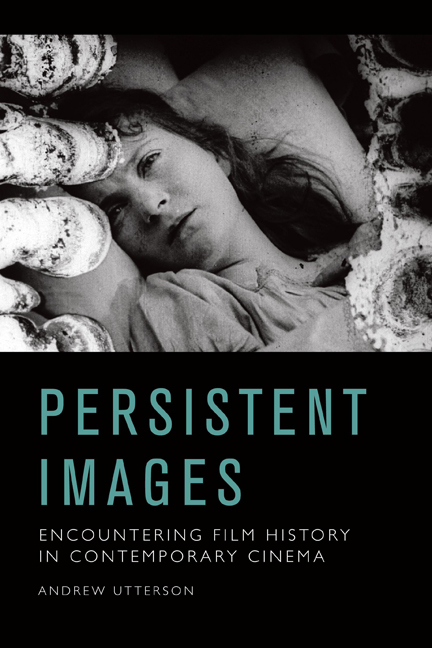Book contents
- Frontmatter
- Contents
- List of Figures
- Acknowledgements
- Introduction
- 1 Media Archaeology and the Memory of a Medium: Dawson City: Frozen Time
- 2 A Drone’s-Eye View of History: Francofonia
- 3 The Movie Theatre as Haunted Space: Shirin and 70×70
- 4 Recalling the Past Lives of Cinema: Uncle Boonmee Who Can Recall His Past Lives
- 5 3D Images at the Edge of History: Goodbye to Language and The Three Disasters
- 6 Voyaging in Deep Time: Voyage of Time: The IMAX Experience
- Notes
- Bibliography
- Index
Introduction
Published online by Cambridge University Press: 26 September 2020
- Frontmatter
- Contents
- List of Figures
- Acknowledgements
- Introduction
- 1 Media Archaeology and the Memory of a Medium: Dawson City: Frozen Time
- 2 A Drone’s-Eye View of History: Francofonia
- 3 The Movie Theatre as Haunted Space: Shirin and 70×70
- 4 Recalling the Past Lives of Cinema: Uncle Boonmee Who Can Recall His Past Lives
- 5 3D Images at the Edge of History: Goodbye to Language and The Three Disasters
- 6 Voyaging in Deep Time: Voyage of Time: The IMAX Experience
- Notes
- Bibliography
- Index
Summary
In the wake of the oft-presumed demise and obsolescence of cinema, its past continues to find presence in the present. Yet, if the memory of cinema persists, it does so in technologically and otherwise reconfigured forms, requiring increasingly creative conceptions of history and time. For the historian attuned to these altered states, contemporary cinema tells its own history (or histories). After all, as this book illustrates in its specific case studies, cinema – including its cumulative archive of images – has demonstrated a remarkable resilience, an unwillingness to be buried or forgotten, resonating in the present in the most surprising and illuminating of ways.
Looking simultaneously backwards and forwards, in these filmic works and their textual analyses, this book argues for the necessity of reflective as well as reflexive ways of thinking about history, in which the interactions of past and present offer up an ongoing space of creative and historical renewal. Where contemporary cinema grasps the capacity to look back, to dig below the surface of film history in its own acts of media archaeology, the traces of the past find revised meaning.
To document cinema at the exact points of encounter between texts and technologies, history and historiography, as Persistent Images: Encountering Film History in Contemporary Cinema seeks to do, is to engage a series of (self-)inscriptions of time and memory that can themselves offer methods and means, models and metaphors for reimagining cinema and reframing its history. Cinema persists in an array of encounters that carry this history into the present, through processes and practices of transformative remembrance.
CINEMATIC–MNEMONIC ENCOUNTERS
The cinematic–mnemonic encounter, that is, the meeting of mediation and memory, beckons the historian. It is a means of mapping the memory of cinema in the interstices of the physical archive of film history and the mnemonic archive of cultural memory, as negotiated in contemporary cinematic texts. At this site of encounter, film history is variously translated and transmuted across temporal registers and spatial dimensions.
In these encounters, the intersections of past and present are zones of connection. To encounter film history in contemporary cinema, as do each of the works that this book considers, is to place past and present in dynamic dialogue. The encounters elaborated are multi-directional, in which the memory of cinema is actively sought, and in which history ruptures and revisits the present in unexpected and unpredictable ways.
- Type
- Chapter
- Information
- Persistent ImagesEncountering Film History in Contemporary Cinema, pp. 1 - 6Publisher: Edinburgh University PressPrint publication year: 2020



